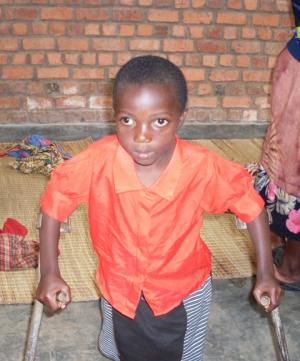BLESSED TO BE A BLESSING

To the members of the Holy Family of Bordeaux, 3 February 1822 is more than a mere historical date; it is an event of enduring fruitfulness, a singular blessing calling forth unceasing praise and joyful thanksgiving, for “The Lord has done great things for us; indeed we are glad.”(Ps 126: 3)
We know well the context of such a grace. The nascent Foundation of Fr. Pierre Bienvenu Noailles was being tossed mercilessly by a storm of opposition and criticism; poverty of material resources and of human support was deeply hurting the vulnerable ‘little flock’ of the Founder. In their distress, in the spirit of the ‘poor of Yahweh’, they turned with trustful abandonment to the One whom they knew ‘would never scorn the poverty of the poor and who, from them would never hide his face’ (Ps 22: 24). How true these words proved to be, for the little group assembled for Benediction of the Blessed Sacrament that particular afternoon! The Lord let them behold his face full of loving kindness.
The Eucharistic blessing of 3 February 1822 is like a multi-faceted jewel refracting the light in varying hues and shades, inviting us to contemplate the inexhaustible Mystery of Love from different angles, in its multiple manifestations.
 Today, let us look at the Miraculous Benediction as a moving revelation of our God who is pure compassion. This means, first of all, that our God is a God who has freely chosen to be God-with-us, a God who enters deeply into human lives and is profoundly moved by human distress. Today, let us look at the Miraculous Benediction as a moving revelation of our God who is pure compassion. This means, first of all, that our God is a God who has freely chosen to be God-with-us, a God who enters deeply into human lives and is profoundly moved by human distress.
In Jesus of Nazareth, this divine solidarity became visible to us clear as day light. The Gospels are full of the radiation of God’s compassion in the words, deeds and the presence of Jesus. It is this same Jesus who walked the streets of Galilee, who came down to Mazarin Street on 3 February to tell us that he is with us and will always be with us.
We know that no gift, no grace is given just for the good of one person or group. Each celebration of 3 February reminds us vividly that being blessed by the Lord in a singular manner, we are called in our turn to be a blessing to our brothers and sisters.
As we contemplate the grace of 1822 as a loving gesture of our God, the God of compassion ‘who sees the affliction of his people, who hears their cry, who knows their suffering and who comes to deliver them’ (cf. Ex. 3:7-8), we feel urged to be a compassionate presence in our competitive world today. Compassion needs to be not simply a virtue among others, but a style of life, a way of being. We are called to take on Jesus’ own way of life, a life of loving solidarity with our brothers and sisters in their vulnerability, poverty, suffering, alienation and misery in its many forms. Compassionate solidarity asks us to go where it hurts to enter, into the pain of the other to share in the brokenness and anguish of the other. Jesus’ radical call to a compassionate existence is embodied in his words: “Be compassionate as your Father in heaven is compassionate.” (Lk 6:36) The God who becomes visible in Jesus is also the source of our own compassion. We have a privileged means of imbibing God’s own compassion in and through the Eucharist.
Jesus’ appearing to our first Sisters during the Benediction of the Blessed Sacrament has a special significance. It emphasises Jesus’ presence with us, his being- with- us, his being-there-for-us. Perhaps this is one important way of expressing of compassion: being-with-the other, being-there-for-the other. Perhaps all that we can do in many instances is just to be-with, to be a presence to, a presence with and among our poor and suffering brothers and sisters. When we are deeply present, our hearts too remain there in true solidarity and communion. Each time we choose to be compassionately present to another we are sharing in the very heart of Jesus.
May the Eucharistic Blessing of Jesus the memory of which we celebrate once again on 3 February 2011, impel us to be bearers of his own compassionate love to our brothers and sisters and to our suffering Earth!
Blessed by Jesus, may we thus become a blessing to others!
Sr. Claire Fernando - Nagoda
 | 


